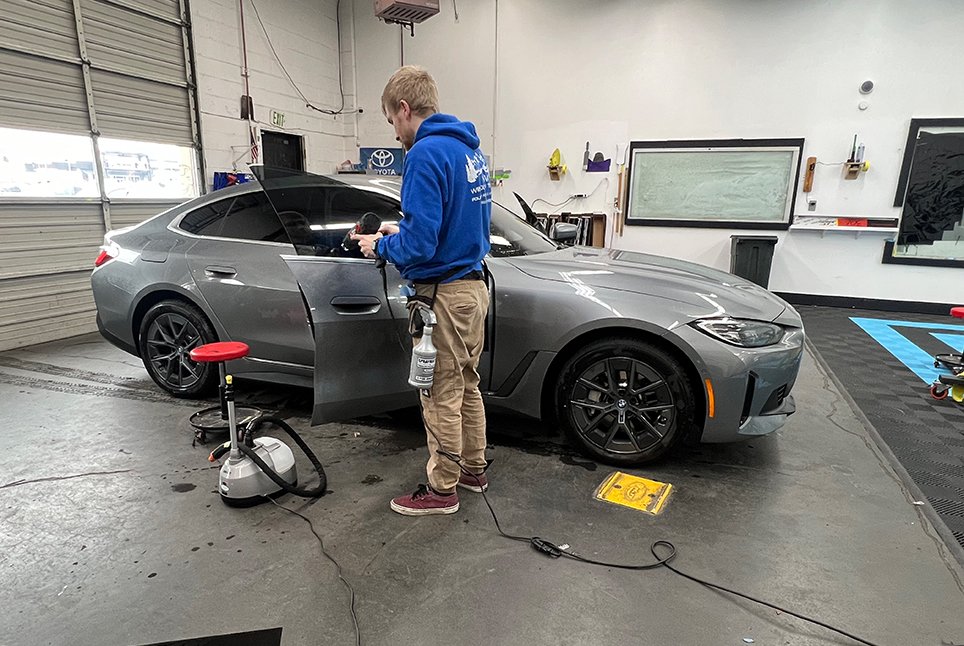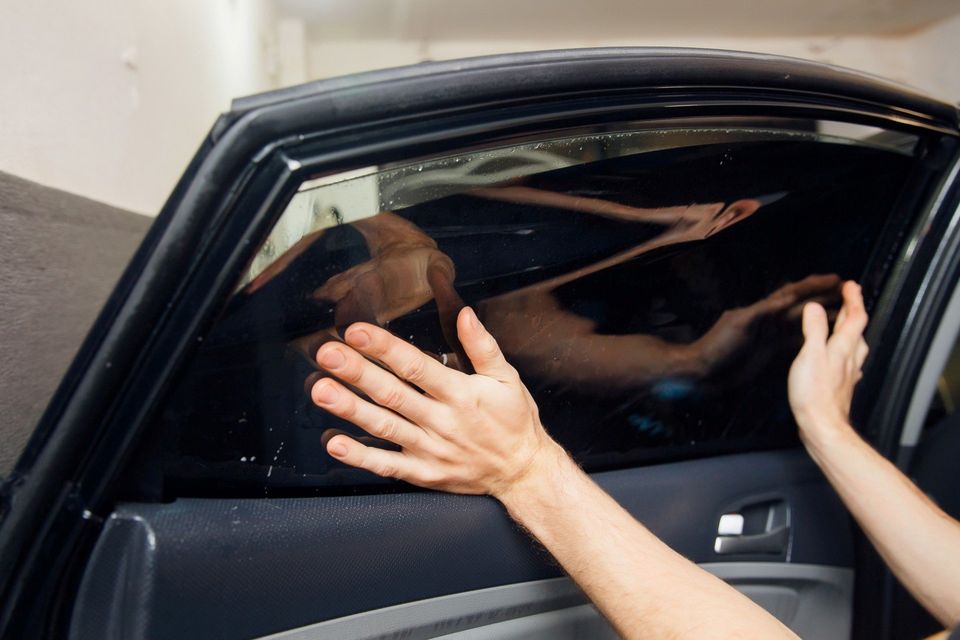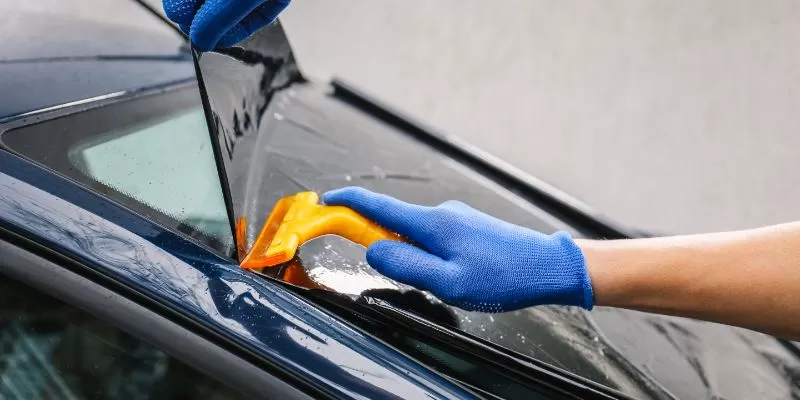Auto Window Tinting: Improve Your Auto's Design and Privacy
Auto Window Tinting: Improve Your Auto's Design and Privacy
Blog Article
Home Window Tinting Regulations and Guidelines: What You Need to Know Before Tinting Your Automobile
Before continuing with home window tinting for your automobile, it is vital to acquaint on your own with the diverse legislations and standards that control this practice across different states. These policies determine the acceptable levels of color darkness, usually gauged by visible light transmission (VLT) percentages, and include specific terms for front windshields intended at making sure roadway safety and security.
Summary of Window Tinting Laws
Home window tinting legislations are regularly subject to variation throughout various territories, showing local policies and safety factors to consider. These laws dictate the permissible levels of tint darkness and reflectiveness on car home windows, guaranteeing that vehicle drivers keep sufficient exposure while also protecting against unsafe UV rays and heat.
Many policies classify window tinting based upon the Visible Light Transmission (VLT) portion, which indicates the quantity of light that can go through the home window. Usually, reduced VLT percentages signify darker tints. Regulations often distinguish in between the front, side, and rear windows, with stricter constraints put on the front windscreen to enhance safety and security for both the vehicle driver and other road users.
In addition, some jurisdictions enforce limitations on the reflectivity of the tint, preventing too much glare that could harm visibility. Exemptions to these laws may exist for people with certain clinical conditions needing added sun protection. Compliance with window tinting regulations is crucial, as infractions can lead to penalties, mandatory removal of the color, and possible increases in insurance costs. It is vital for lorry owners to acquaint themselves with neighborhood laws prior to proceeding with window tinting installations.
State-by-State Tint Rules
Comprehending the particular window tinting laws in each state is crucial for automobile owners seeking to comply with the legislation. Each state in the united state has actually developed its very own collection of policies governing window tinting, which can differ dramatically. These regulations often dictate the allowable degrees of tint darkness, the kinds of windows that can be tinted, and any type of clinical exemptions that might apply.
As an example, states like California have rigid restrictions on color darkness for front windows, while others, such as New Mexico, might allow darker colors. In addition, specific states mandate details exposure portions for numerous home windows, consisting of the windshield, front side windows, and back home windows. It is essential for automobile owners to acquaint themselves with their state's regulations to stay clear of prospective penalties or charges.
Additionally, some states may need a qualification sticker label to be positioned on colored windows, indicating conformity with state legislations. Failure to stick to these guidelines not only runs the risk of legal effects however can likewise impact safety and presence while driving. Consequently, car owners ought to conduct detailed research or speak with neighborhood authorities to guarantee full understanding and compliance with state-by-state color regulations.
Allowed Color Levels and Types
Lots of vehicle owners may be surprised to discover that allowed tint degrees and types vary extensively across different states. Each state has actually developed its very own regulations relating to the permissible darkness and reflectivity of window color, frequently measured by Visible Light Transmission (VLT) percentages. VLT describes the amount of light that can travel through the colored windows; hence, a lower percentage shows a darker tint.

Additionally, the kinds of tint products allowed can vary, with some states banning metal or mirror-like coatings. It is important for car proprietors to familiarize themselves with their state's certain legislations to ensure conformity. Non-compliance can result in fines, mandatory removal of the color, or various other lawful repercussions, making it necessary to comprehend these guidelines prior to waging installment.
Medical Exemptions for Tinting
While not all states provide allowances for medical exemptions concerning window tinting, those that do acknowledge the need for specific individuals to improve presence and convenience due to medical problems. Numerous medical problems, such as lupus, skin cancer, and particular eye conditions, can make individuals especially delicate to sunshine. As a result, these individuals might need darker tints to protect themselves from dangerous UV rays and glare.

It is essential to keep in mind that despite having a medical exception, there may still be constraints on the degree of tint enabled. Conformity with state laws makes sure that individuals are both safeguarded and within legal restrictions. Those considering clinical exemptions ought to contact their regional Division of Electric motor Cars or equal authority to comprehend the demands and procedures essential to make an application for an exception efficiently.
Penalties for Non-Compliance
Failing to follow home window tinting regulations can lead to significant charges, which vary by state. Legislation enforcement companies are equipped to provide citations for cars that do not comply with the specified tinting policies. These charges typically include fines, which can vary from moderate amounts to several hundred dollars, depending upon the severity of the offense and the state concerned.
In some territories, duplicated offenses might lead to intensifying fines or additional penalties, such as compulsory court looks. In addition, non-compliance might require the elimination of unlawful tinting, often at the owner's expense. In extreme instances, habitual offenders may face suspension of their vehicle registration till conformity is accomplished.
Furthermore, insurance policy ramifications may arise from getting several citations for window color infractions. Insurance providers might see such infractions as an indication of riskier behavior, possibly bring about enhanced costs or trouble in coverage.
To avoid these penalties, it is critical for car proprietors to content familiarize themselves with their neighborhood home window tinting legislations and make sure that their lorry complies (Window Tinting). This proactive approach not just stays clear of lawful ramifications but additionally advertises roadway safety and security
Final Thought

A lot of policies categorize window tinting based on the Visible Light Transmission (VLT) portion, which suggests the amount of light that can pass via the home window. Compliance with window tinting laws is essential, as violations can result in fines, mandatory elimination of the tint, and potential increases in insurance premiums.Recognizing the details window tinting laws in each state is important for lorry owners looking for to conform with the law. These policies usually determine the permitted degrees of tint darkness, the kinds of home windows that can be tinted, and any kind of clinical exemptions that may use.
For instance, states like California have rigorous restrictions on tint darkness for front home windows, while others, such as New Mexico, may allow darker colors.
Report this page